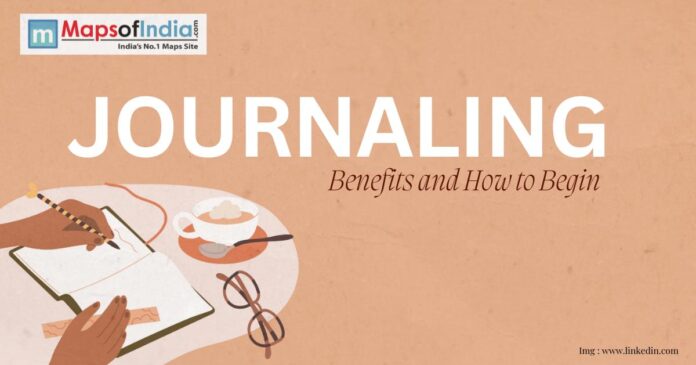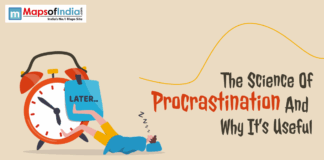Journaling is a simple but, at the same time, powerful practice. This involves writing your thoughts and experiences on a regular basis. From personal reflections to goal tracking, it serves many purposes. In recent times, journaling has gained popularity for mental health. An American Psychological Association report notes that 25% of adults journal weekly. It’s accessible with pen and paper or apps. Developing this timeless habit boosts self-awareness. It helps one to process their emotions and set intentions.
What Is Journaling and Its Historical Roots
Journaling means recording one’s daily thoughts. Anyone can do journaling; it can be free-form or structured. Ancient Romans like Marcus Aurelius kept stoic journals. According to the Britannica article, the practice of journaling traces back to 10th-century Japan. Court ladies wrote pillow books. Leonardo da Vinci’s notebooks from the 15th century detailed inventions. We can say that modern journaling began in the 1960s. Psychologist Ira Progoff’s Intensive Journal method gained traction among the masses. This focuses on self-growth. Nowadays, it includes bullet journals and digital apps. Journaling gives clarity to the writer. This is used as a tool for reflection and growth. Its history shows universal appeal across cultures and eras.
Mental Health Benefits of Regular Journaling
Journaling helps to ease stress and anxiety. Expressing your emotions in writing releases pent-up emotions and gives you clarity. According to the study by Baikie and Wilhelm in Advances in Psychiatric Treatment, found that journaling reduces distress by 20%. It lowers cortisol levels. Journaling improves mood. A University of Rochester study showed grateful journaling boosts happiness by 25%. It shifts focus to positive things happening in life. For depression, it can help to track patterns. Many psychologists use it to aid therapy. PTSD patients benefit from trauma journaling. A Journal of Traumatic Stress report found that journaling reduces trauma symptoms by 15%. Sleep improves with bedtime journaling. It clears racing thoughts. Journaling builds resilience. It helps process challenges effectively.
Physical Health Advantages Linked to Journaling
Journaling also supports physical well-being. It strengthens immunity. A study by James Pennebaker in 1999 for the Journal of Consulting and Clinical Psychology found expressive writing boosts T-lymphocyte levels by 10%. It also helps in the Wound healing process. The same study showed a 50% faster recovery. Blood pressure drops with regular journaling due to reduced stress. A Frontiers in Psychology report notes a 5 mmHg reduction. Daily journaling also aids in weight management. Food journaling tracks habits. An American Journal of Preventive Medicine study says it doubles weight loss. Chronic pain eases through emotional release. A Pain Management Nursing journal found 12% pain reduction. Journaling encourages healthier choices. It reinforces exercise goals.
Different Types of Journaling Practices
Journaling can be done in various forms. There is a type of gratitude journaling that lists daily positives. This kind of positive journaling helps to enhance optimism. Bullet journaling uses symbols for organisation. There is Ryder Carroll’s 2018 method, which tracks tasks creatively. Reflective journaling helps to explore emotions. This kind of journaling is well-suited for therapy. There are many prompt recommendations, like “What challenged me today.” Travel journaling documents one’s adventures. It helps to preserve memories. Art journaling combines sketches and words. According ot the Creativity Research Journal study found that it reduces anxiety by 15%. Dream journaling is done to record nighttime visions. It boosts recall. Fitness journaling logs workouts. Choose a type that fits your goals. Mix styles for variety.
How to Start Journaling as a Beginner
Starting journaling is an easy process. Choose a notebook or app. According to the Journal of Positive Psychology study, the physical writing deepens reflection. Start writing daily, set aside 10 to 15 minutes daily for journal writing. Mornings or evenings, you can write anytime suitable for you. Use prompts to get inspiration. Use simple prompts like “What am I grateful for?”. Many experts suggest consistency is important over perfection. Write freely, whatever comes to your mind without fear of judgment. Track your progress weekly. Digital apps like Day One offer reminders. A Forbes Health report says they boost adherence by 30%. Join online communities to get motivation. Start small to help build habits. Journaling grows with practice. It becomes a cherished routine.
Overcoming Common Journaling Challenges
While doing Journaling, you can face many hurdles. Writer’s block is common. Use prompts to get ideas. Time constraints deter beginners. At the beginning, you can start with 5 minutes. Consistency beats length. Short writing sessions help to build momentum. While writing about private topics, fears arise. Use locked apps or hidden notebooks to write about it. Perfectionism stalls progress. Messy writing is also good. Imperfection fosters growth. Boredom hits repetitive entries. Try various formats of journaling, like drawings, to keep yourself busy. Motivation may reduce over time. Set reminders and keep some time from day to journaling. After some time, journaling becomes an enjoyable process. Challenges are surmountable with patience.
Integrating Journaling into Daily Life
With daily writing, make journaling a habit. Link it to your daily routines, like coffee time. A book, Atomic Habits by James Clear, suggests using habit stacking. Track your moods to spot patterns. Use apps like Mood Tracker to get insights. According to the Forbes Health report, digital journaling increases reflection by 20%. Combine with meditation for deeper thoughts. Set themes for a week, like gratitude for a week. Travel journals capture adventurous stories. Fitness logs motivate for daily workouts. A Journal of Sport and Health Science study found it boosts adherence by 15%. If you have a trusted friend, share entries with them for feedback. Journaling fits busy lives. It enhances mindfulness and growth.
Scientific Evidence and Expert Insights
Science has shown many benefits of journaling. Expressive writing heals emotional wounds. Daily journaling reduces doctor visits by 50%. It boosts immune function. It also reduces stress by 20%. Gratitude journaling improves sleep. An Applied Psychology study found that 15 minutes nightly adds 30 minutes of rest. Experts like Julia Cameron in “The Artist’s Way” (1992) advise doing journaling in the morning. It helps to clear mental clutter. An APA report suggests that journaling aids PTSD recovery by 25%. These findings prove its power. Journaling is evidence-based self-care.
Conclusion
Journaling is a transformative habit that helps you build yourself. The history of journaling spans over cultures and centuries. Journaling can give many mental benefits, including stress relief and mood boost. It helps in many Physical ways also. Advantages range from immunity to pain reduction. If you are a beginner, start with prompts and consistency. Overcome challenges with flexibility. Make it your daily routine for lasting impact. Journaling helps to achieve self-growth. Grab a notebook and begin writing daily without fear of being judged. Small entries lead to big changes. Journaling unlocks clarity and joy.





